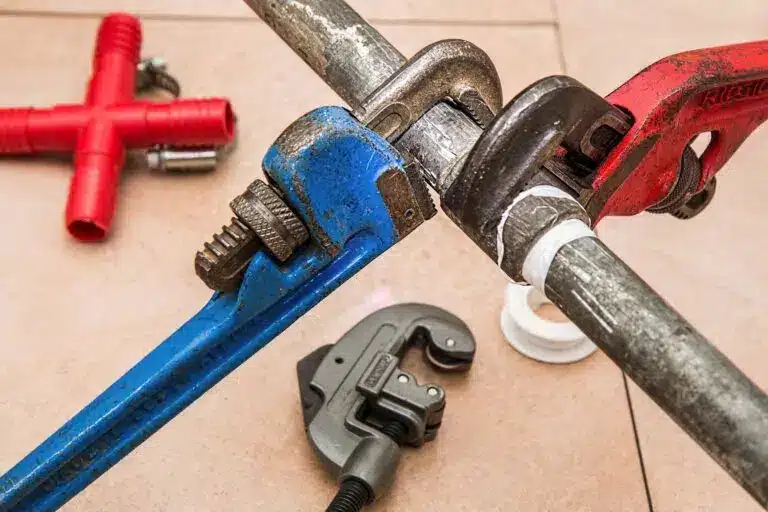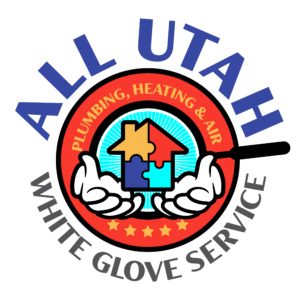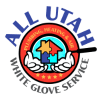
Image by Steve Buissinne from Pixabay
As the weather starts to cool down, it’s essential to take some time to prepare your home’s plumbing for the colder months ahead. By taking a few straightforward steps now, you can avoid costly repairs and ensure that your pipes are ready to withstand the cold.
Freezing temperatures can cause pipes to burst, so it’s important to take steps to protect them. One pretty simple way to do this is by installing insulation around them. You can also use heat tape or pipe sleeves to keep them warm.
Burst pipes can cause massive damage, so it’s best to take preventative measures now. The last thing you want is a pipe bursting in the middle of a cold winter night.
It’s critical to remember that not all pipes are created equal. Some pipes are more susceptible to freezing than others. If you have doubts about whether your pipes can handle the cold, it’s best to take action now and avoid any potential problems later.
Here are a few tips to get you started:
Inspect all Exposed Pipes
Look at all the exposed pipes in your home, both inside and out. If you see any cracks or damage, it’s vital to have them repaired as soon as possible. Even the tiniest cracks can allow cold air to seep in and freeze the water inside the pipe, leading to big problems down the road.
Generally speaking, what you’re looking for includes:
- Cracks in the pipes themselves
- Gaps or holes around fittings or valves
- Damaged insulation
If you’re not sure whether a particular pipe needs to be repaired, err on the side of caution and have it checked over thoroughly by a professional. It’s always better to be safe than sorry when it comes to your home’s plumbing.
Add Extra Insulation
In addition to repairing any existing damage, you should also take measures to prevent future problems by adding extra insulation to your pipes. This is especially important for your exposed pipes but can also be helpful for pipes that run throughout unheated areas of your home, such as the attic or basement.
There are a variety of insulation materials available, so you’ll need to choose the one that’s best suited for your needs. For example, foam insulation can fill gaps and cracks, while fiberglass batting or wrap is ideal for wrapping around pipes. Whatever material you choose, make sure it’s rated for use with plumbing, and follow the manufacturer’s instructions for installation.
Winterize Crawlspaces
As the temperatures start to fall, it’s absolutely essential to take steps to winterize your home and prevent cold air from causing damage. One critical area of the home that is almost always overlooked when it comes to winterization is the crawlspace.
Crawlspaces are particularly vulnerable to cold drafts and, if not properly insulated, can cause your pipes to freeze.
To winterize a crawlspace, start by caulking around any openings, such as gaps around vents. This will help to seal off the space and prevent cold air from entering. Next, install a heavy-duty vapor barrier over the ground. This will act as an additional layer of protection against the cold and will help to keep your pipes from freezing. By taking these fairly simple steps, you can help to protect your home against the colder weather and avoid costly repairs.
Close Foundation Vents
Another way to prevent cold drafts from entering your home is to close the foundation vents. These vents are typically located around the perimeter of your home and are used to ventilate the crawlspace.
In the winter, however, they can allow cold air to enter the home and cause your pipes to freeze. To avoid this, close the vents when the temperatures start to drop. Then, once the weather warms back up, you can open them again to allow for ventilation.
Use Heat Tape or Pipe Sleeves
If you live in a part of Utah that is particularly prone to freezing temperatures, you may want to take additional steps to help protect your pipes. One option is to use heat tape or pipe sleeves.
Heat tape is a self-adhesive tape that can be wrapped around pipes. It uses electricity to generate heat, which helps to keep the pipes from freezing. Pipe sleeves are another option and work by insulating the pipes and reflecting heat back to the pipes.
Both options are effective at preventing pipes from freezing and can be found at most hardware stores.
Disconnect Outdoor Hoses
Once the temperatures start to dip, it’s important to disconnect any outdoor hoses that are connected to your home’s plumbing. Leaving a hose attached can allow water to freeze inside the pipe, which can cause severe damage.
If you have a sprinkler system, be sure to have it professionally winterized before the cold weather sets in. This will help to prevent any water remaining in the pipes from freezing and causing damage.
Install Hose Bib Covers
If your home has outdoor faucets, it’s essential to protect them from the cold weather. Hose bib covers are an inexpensive way to do this and can be found at most hardware stores. Simply slip the cover over the faucet and secure it in place. This will help keep the water inside the pipes from freezing and solve many plumbing problems before they even become an issue.
Know Where Your Water Shut-Off Valve Is
If you have a plumbing emergency, it’s absolutely critical to know where your main water shut-off valve is located. This will help you to quickly turn off the water and prevent further damage if a pipe should burst.
If you’re not sure where your shut-off valve is, take a few minutes to locate it now. It’s also a good idea to get to know the location of any other valves in your home, such as those for your washing machine and dishwasher.
Keep Your Home Heated if You Leave for a Vacation
Keep your home heated, even if you’re not using all the rooms. This will help you keep the pipes from freezing. Also, if you’re going to be gone for more than a few days, it’s a good idea to have a close friend or neighbor check on your home regularly to make sure everything is working properly.
Have a Professional Check Your Plumbing
Even if you take all the necessary precautions, it’s always a good idea to have a professional plumber check your plumbing system before the cold weather sets in. They can inspect your system and make sure that everything is in good working order. They can also give you peace of mind knowing that your home is ready for winter.
All Utah Plumbing Heating and Air Is Ready to Help
Taking the time to prepare your home’s plumbing for colder weather can save you a lot of headaches (and money) down the road. By following these simple tips, you can rest assured that your pipes will withstand the cold and keep your home running smoothly all winter long.
We are trustworthy professionals providing exceptional customer service
Our customers and employees are our top priorities. We approach each job prepared to serve our client’s needs quickly.
If you have any concerns or questions, contact your professional plumbing team at All Utah Plumbing Heating and Air for all your routine check-ups, maintenance, emergency services, and other plumbing services. We’re always happy to help with all your plumbing needs!







